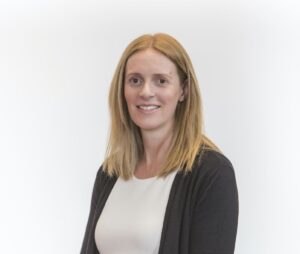Automation Consultant | Brisbane
At Intelligent Pathways, we pride ourselves on the diverse expertise and adaptability of our team members. This month, we had the opportunity to sit down with Aaron Karlsen, who has been pivotal in advancing our Azure data services. With a background in Robotic Process Automation (RPA) and a newfound passion for data engineering, Aaron seamlessly transitioned to focus on integrating and optimising data solutions for our clients. Aaron is an enthusiastic adopter of technologies and embodies our commitment to adapting and evolving in the dynamic tech landscape. In our Q&A, Aaron shares insights into his role, challenges he’s overcome and his vision for the future.
Can you describe your role and what a typical day might look like for you?
In my current role, I have been focusing heavily on Azure data services, ensuring optimal performance and guiding implementations within our team. While my background is in RPA, I’m transitioning towards data engineering and analysis. A typical day involves strategising Azure data solutions and supporting team efforts to elevate our capabilities in this domain.
Since returning to IP, you’ve been pretty adaptable amidst numerous projects and changes. What’s been the biggest professional challenge that you’ve encountered recently?
Jumping into the data space has been quite a journey for me, especially coming from a process-oriented background. It’s been like diving into a whole new realm, but surprisingly, there are overlaps with my previous work in terms of managing workflows and processes. Learning concepts like data warehousing, schemas, and Azure services was a big learning curve. I dedicated six months to immersing myself in Azure to get up to speed. Another big aspect has been gaining confidence in sharing my ideas with conviction they will work—a skill I’ve been honing along the way.
Can you tell me a little bit about some of the business problems you’re currently working to solve?
Currently, my focus is on integrating diverse data from in-house systems into a unified platform, particularly enhancing the onboarding process for applicants at a University client through a system called StudyLink. This involves consolidating data from audit and academic sources into curated datasets. Initially, we faced challenges with slow query times using Azure Synapse and SQL pools for raw file queries, taking 10 to 15 minutes per dataset. To address this, we implemented external tables, which streamlined data access by querying curated datasets instead of raw files, significantly improving performance. Now, in most cases the process takes seconds.
What skills or technologies are you aiming to learn, or further develop in the near future?
At the moment, I’m continuing to solidify foundational knowledge, particularly in data warehousing and data modelling. Understanding these principles deeply is crucial as I prepare for future advancements in areas like AI. My goal is to master these fundamentals before exploring newer technologies. Data modelling, in particular, is paramount—it forms the backbone of effective data management and decision-making, which are invaluable to businesses. Building expertise in tools that support robust data modelling is also part of my current trajectory.
Is there an app or a piece of technology that you couldn’t live without right now?
My AirPods. I don’t have anything more valuable to me that I couldn’t do without. I use them everywhere – when I’m working or in meetings.
Lastly, do you have a hobby or interest that most people you work with don’t know about?
I do a lot of game modification, which is building packages that implement new content or alters existing parts of the game to either fix bugs, improve quality-of-life, or just make things more interesting. The game modding community is quite large, all voluntary, and has been a fun way for me to learn new skills. Particularly with Minecraft at the moment. That’s probably the one thing I have time for outside of running around after my son!


